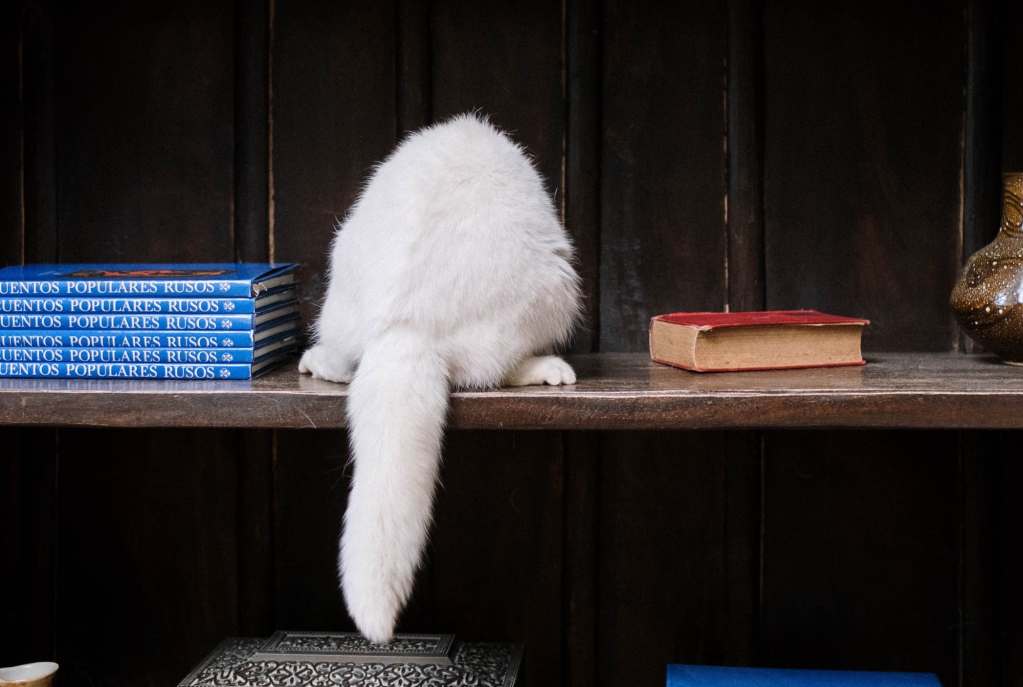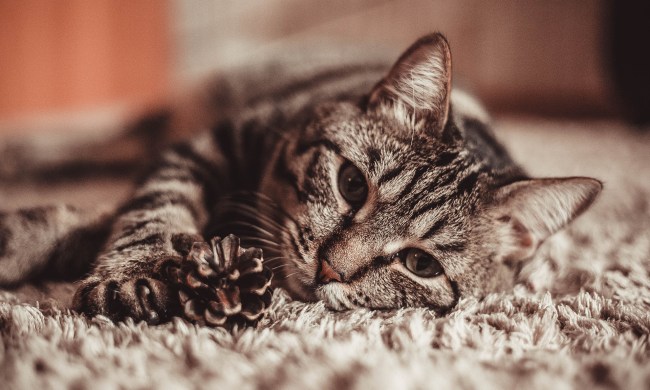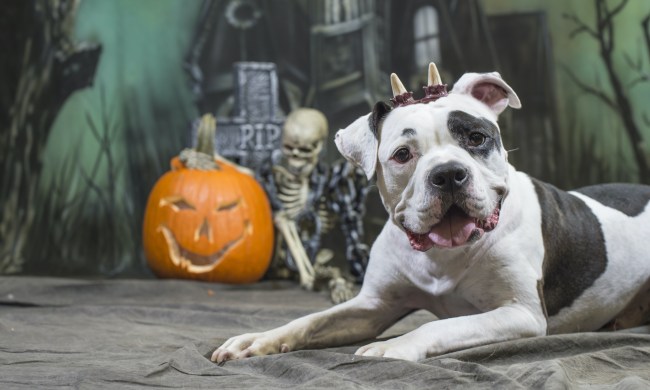
It’s no secret that dogs fart — sometimes just as much as humans do. Some pooches aren’t afraid to let ’em rip, but cats tend to be more shy when it comes to their bodily functions. That’s why some cat owners don’t even know if felines fart! Most kitties do their business in the privacy of their litter box, so it makes sense why kitty toots are so elusive.
If you’ve ever wondered, “Do cats fart?” but were too shy to ask for yourself — consider your search over. We’ll discuss what you need to know about feline flatulence and its causes, including when you need to contact your vet. Soon, you’ll know more than you ever anticipated.
Do cats fart?

Just like the majority of mammals (sloths and bats are the exception) cats occasionally pass gas. This tends to happen less frequently than with dogs or people, but this could be because cats tend to prefer using their litter box in peace. Eventually, though, most cat owners will see or hear a toot from their furry friends. This can be more common for some cats than others, so what’s “normal” could vary from one furry friend to the next.
Causes of feline flatulence

Flatulence is caused by a release of built-up air in the digestive tract. This can happen for a number of reasons, most of which are nothing to worry about. However, excessive flatulence or sudden, severe changes in your kitty’s digestive health are worth keeping an eye on. Most of the time, however, you’ll be dealing with one of these minor, fixable problems.
Swallowing too much air
If you’ve ever found yourself hiccupping, burping, or experiencing gas after a meal, you can probably relate to your cat’s situation. Many felines get the toots after swallowing air while eating, which is often the result of overeating or eating too fast. To combat this, you can try feeding your cat in a specially designed slow-feeder bowl to increase the time between each bite. If you have multiple cats that eat at the same time or share a food bowl, try feeding each cat in separate rooms to ensure no one feels pressured to eat quickly.
Food allergies or food poisoning can cause digestive issues
Another common (and predictable) cause of gas is a reaction to food. Whether the food was spoiled or was something that your cat was allergic to, it doesn’t take long before digestive symptoms, like bloating and gas, can occur. This may happen more frequently if your feline friend is an outdoor cat that brings home “gifts” or hunts while they’re out.
Even environmental allergies can cause flatulence
It makes sense that food allergies can cause cats to pass gas, but did you know that environmental allergies can do the same thing? It’s true! If your cat grooms themselves while exposed to an allergen like fleas or pollen, they can end up with some intestinal upset. Skin problems may not be the first thing you’d consider when a cat has gas, but it could be a clue if everything else seems normal.
Your cat may be tooting after eating people food
Stomach upset can happen for a number of different reasons, including when your cat eats something they shouldn’t have. If your cat is known for being naughty or stealing a snack, this just may be the case. However, this can also happen if you’ve offered your pet a bite of people food, no matter how bland and safe the ingredients may be. Some cats are simply extra sensitive to ingredients, while others may be struggling with the sudden change in diet.
Gas can be a sign you need to change your cat’s diet
If your cat is chronically gassy, you might want to take a closer look at their diet. Occasional gas is totally normal, but if it’s a frequent problem that causes your cat irritation or discomfort, you’ll want to think about changing things up. A bland diet of chicken or fish with rice or potatoes can be helpful when your cat is dealing with major problems, but a veterinarian will be your best resource when finding the right cat food to switch your kitty to for the long term. Gradual diet changes can help prevent extra gas and stomach upset, so be sure to give it time.
Rarely, gas can be a sign of intestinal parasites
Although the vast majority of flatulence cases are nothing to worry about, a small number of cases are caused by something more serious, like intestinal parasites. Tritrichomonas foetus, specifically, is a parasite that causes stinky gas, and, in later stages, diarrhea. It can be treated with veterinary intervention and is most common in young cats from multi-pet households, especially kittens. If there are any clues that lead you to believe a parasite may be behind your cat’s gas, you’ll need to visit the vet to set up your furry friend with the best medication. Diarrhea can leave a pet dehydrated, too, so don’t waste time getting your kitty the help they need.
If the only symptom you’re noticing is your cat’s farts themselves, you may not need to see a vet. Some rest, water, and a bland diet can do wonders in most situations, but if things don’t resolve, calling the vet is never a bad idea. If anything, it will help your cat feel better even quicker.



